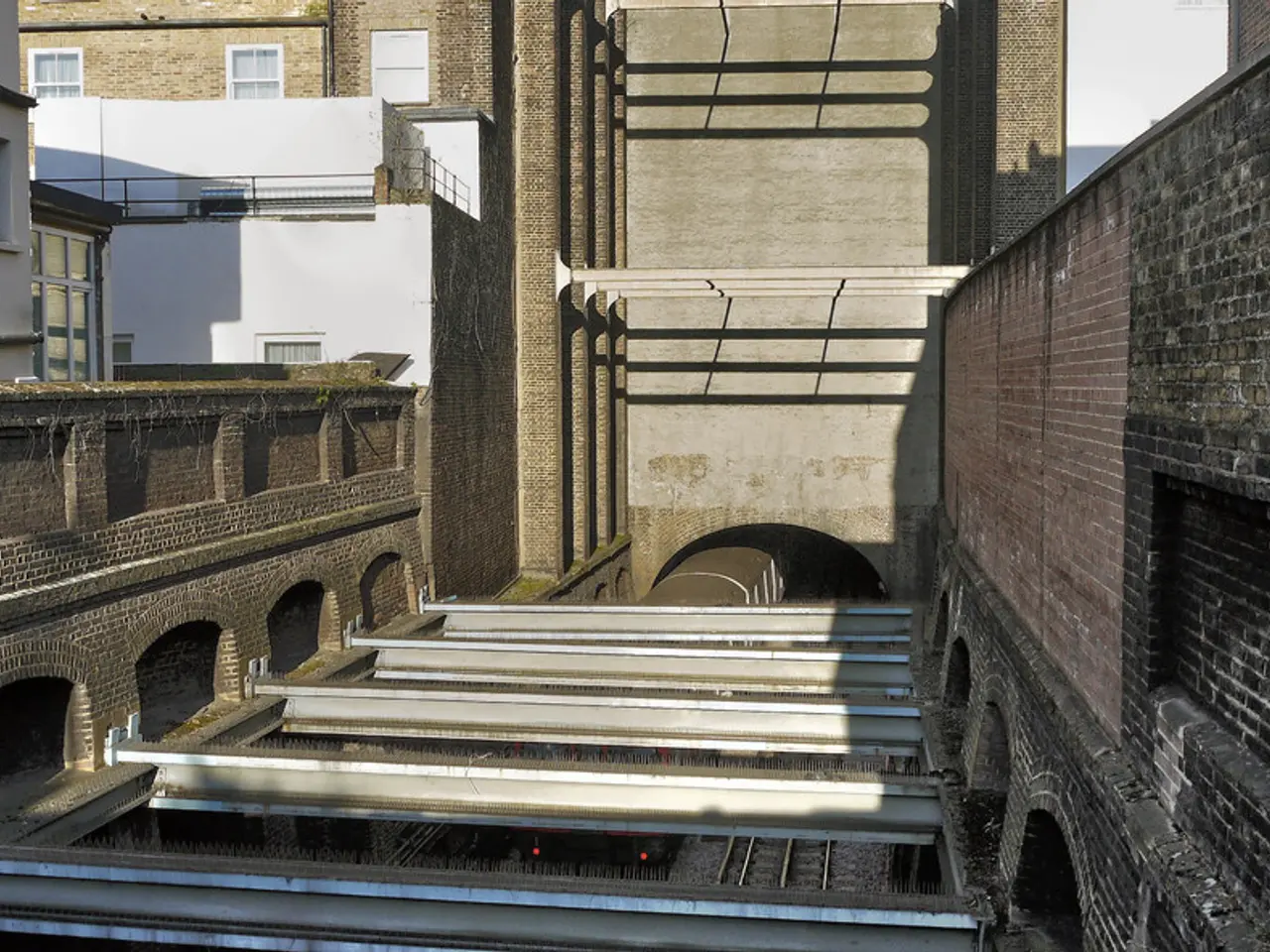Elon Musk aims to construct subterranean passageways.
In the heart of Tennessee, Elon Musk's The Boring Company has proposed an ambitious plan to revolutionize transportation in Nashville. The Music City Loop, a 10-mile underground tunnel connecting Nashville International Airport to downtown, aims to reduce traffic and cut travel time to about eight minutes [2][5]. The tunnel would run beneath key streets such as Murfreesboro Pike, with stations like one at the Music City Center parking garage [1][5].
However, the project is not without its hurdles. Local concerns have arisen, particularly from Nashville Mayor Freddie O’Connell, who questions the Music City Loop's alignment with the city's voter-approved transit plan "Choose How You Move," especially regarding its potential impact on Murfreesboro Pike, a major transit corridor [1]. City officials have submitted over 70 questions to The Boring Company and the state about the project’s route and impact, indicating skepticism and a desire for detailed analysis [1].
Geological and environmental risks also loom large. Experts warn that the tunnel could pose flooding risks due to Nashville’s shallow underground water table, potentially affecting water availability in the Cumberland River and surrounding areas. The geology professor consulted highlighted concerns about hitting water-filled underground spaces during tunneling, which could complicate construction and pose safety risks [3]. Environmental impacts, including the potential for tunnel collapse or other unforeseen consequences, have also been flagged by local lawmakers and residents [5].
The Boring Company's track record has raised doubts as well. While the company has successfully completed a tunnel in Las Vegas, questions remain about the feasibility and reliability of the project's ambitious timeline and budget estimates [2]. Steve Davis, President of The Boring Company, has stated that if they had chosen the easiest place to dig a tunnel, they wouldn't have come to Nashville [6].
Regulatory and construction status are also crucial factors. Construction is planned to begin after regulatory approvals, with the state allowing The Boring Company to use a construction staging lot near Rosa L. Parks Boulevard. The company reportedly can tunnel about one mile per month, projecting phased completion starting as early as fall 2026 for the initial segment [2][5].
Despite these challenges, the project has garnered support from entities like the Music City Center. Tesla cars are expected to roll through the first section of the Nashville tunnel as early as this fall [4]. However, the broader public and political confidence remains cautious, with concerns about emergency services reaching the accident site in the Las Vegas tunnel scenario, and the potential for a single defective car to bring traffic to a standstill in one direction [3].
City officials continue to rigorously scrutinize the project amid these challenges, with Mayor O'Connell having sent The Boring Company a list of more than 80 outstanding questions [1]. The Music City Loop, with its promise of a visionary transit solution and private funding, faces a complex web of concerns that must be addressed before it can become a reality.
- The Boring Company, aiming to revolutionize transportation in Nashville, has proposed the Music City Loop, a futuristic 10-mile tunnel project that involves gadgets like autonomous Tesla cars and cutting-edge technology.
- The project, however, encounters questions from city officials, including Mayor Freddie O’Connell, about its alignment with the city's transit plan, as well as concerns regarding its impact on local streets and potential geological and environmental risks.
- Businesses, such as the Music City Center, demonstrate their support for the initiative, but skepticism prevails among the broader public and political realm, with worries about safety and efficiency.
- Amid these challenges, The Boring Company plans to begin construction after acquiring regulatory approvals, with the goal of completing the project in phases, starting as early as fall 2026, by integrating the latest advancements in finance, transportation, and automotive industries.




